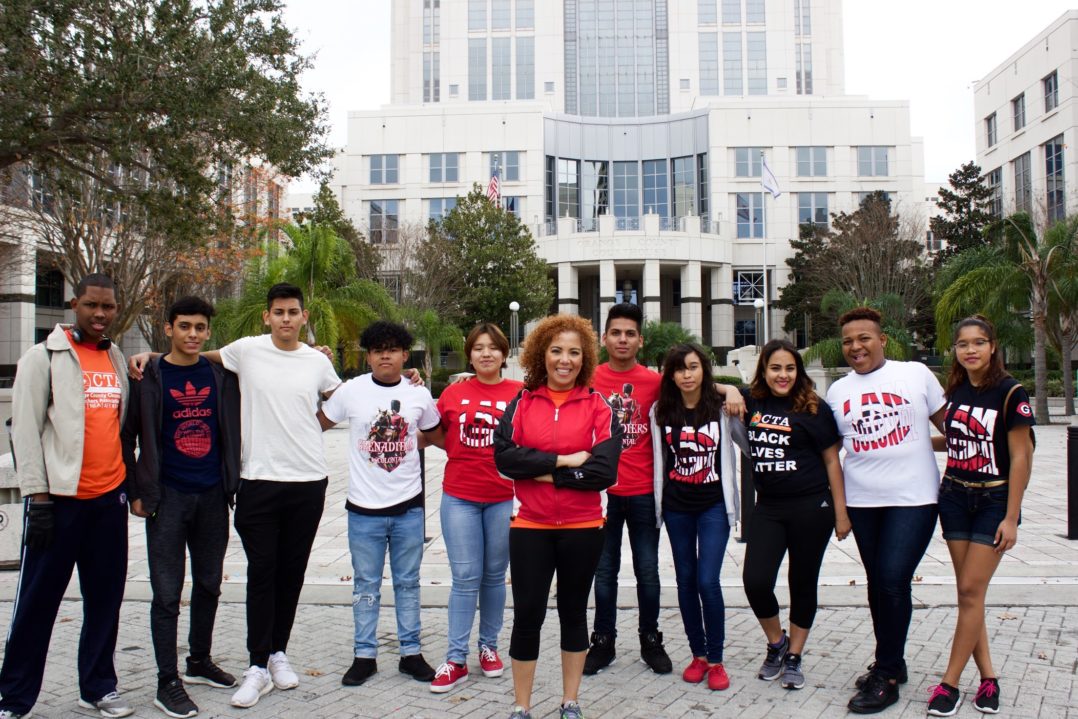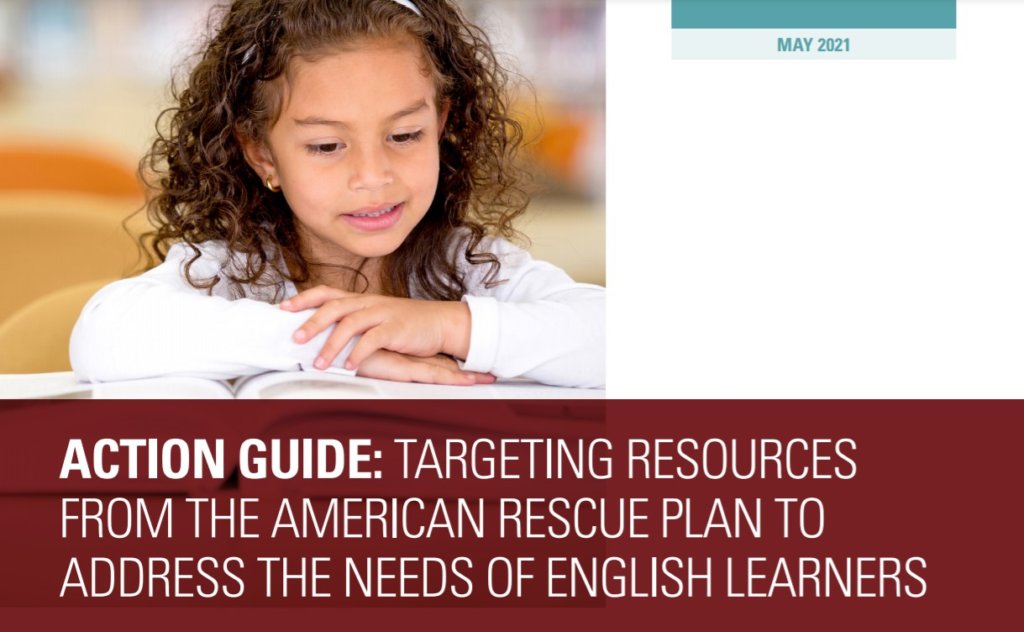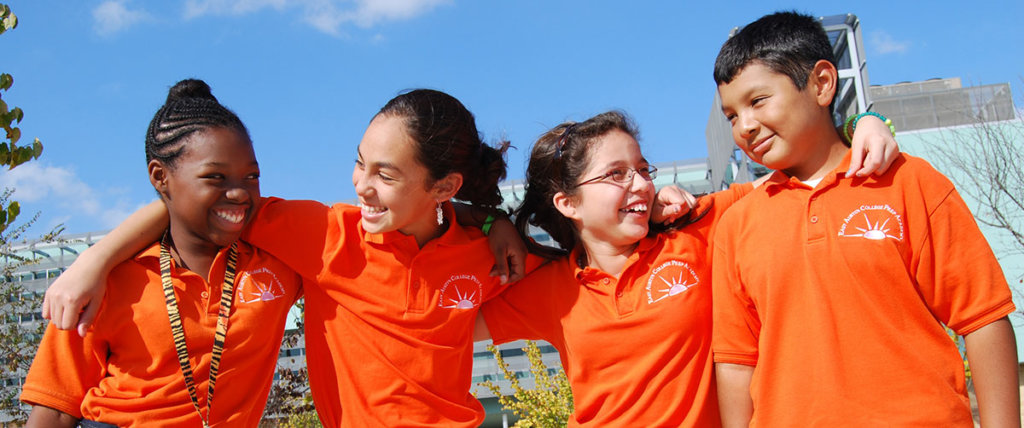Orlando’s Only Latina School Board Member is Changing the Way Central Florida Addresses its Increasingly Diverse Student Population

It’s easy to see why former students of first-time Orange County School Board Member Johanna Lopez ran a successful election campaign on her behalf last fall. Her enthusiasm for affirmational teaching tactics is so strong she lights up the windowless board room in the Orlando School Board Building where she’s come to meet with The Progress Report.
“I always work on the self-esteem of the students. I want them to feel comfortable. I want them to feel welcome and trust they can ask me whatever they want to ask me,” she says.
Her dedication to teaching has won her some top awards. Those include the 2017 Orlando County Public Schools Teacher of the Year, a Governor’s Shine Award for Commitment to Public Urban Education, Macy’s Magic of Leadership Award, the Wings of Inspiration Award, Coca-Cola’s Educator of Distinction Award, and the Life Changer of the Year Award. And when Lopez won election last fall, she became the only Latina on the school board.
“I think people know it’s time to have representation of our communities,” she says. “We have to be more effective and more assertive.”
Tied up in all these wins is a touch-and-go career story that can serve as an inspiration to students in experiencing challenging life moments. Lopez obtained a master’s in higher education in Puerto Rico in 1999. But when she moved to Orlando with a child in tow in 1998, she spent her first year working at a car wash and a fast food restaurant.
Ambition had to take a backseat. There was the practical need to provide for her family, coupled with the trepidation that affects so many non-native English speakers—the anxiety over having an accent or making grammatical errors.
“The majority of our community, when they come from Puerto Rico or from other foreign countries, they feel uncomfortable in finding a job in their field,” she says. “I expected to be perfect in the second language.”
But Lopez’s confidence would soon grow, putting her on a path to succeed as an educator.

Language is More Than, Well, Language
In 1999, a neighbor asked Lopez why she wasn’t applying for jobs in her field. Her reply? “Because I don’t know how to do it.”
Essentially, life circumstances had zapped her sense of direction and ambition. But all that changed when the neighbor encouraged her to try volunteering at Orlando’s Colonial High School.
Shortly after she started, a teacher became ill, and just about that point, the school was experiencing major growth in its English learner population, made up mostly of Spanish speakers. These circumstances quickly catapulted Lopez from volunteer, to substitute teacher, to full-time faculty doing exactly what made her comfortable. She successfully developed and implemented an Advanced Placement Spanish literature course that could help Spanish speakers who were English learners get up to speed in all their academic coursework by bolstering their reading and writing skills.
“If you master your native language, you’re going to master your second language,’” Lopez recalls telling the school administrators, noting that reading and writing is more than just understanding good grammar. It’s about reflecting and organizing clear ideas.
The program proved so successful that Colonial High School now has more than 300 AP Spanish language and literature students, including ones that speak Spanish as their second language. The program has maintained a 100% passing rate since its inception.
Youth and Parent Engagement Outside the Classroom
Lopez has also explored educational best practices by working on the Bill & Melinda Gates Foundation’s Teacher Advisory Council, the Orlando County Public Schools Foundation Board and Mi Familia Vota’s Education Committee. In 2017, she participated in Public Education Leadership Project at the Harvard Graduate School of Education.
Outside of school-day teaching, one of Lopez’s greatest pleasures has been helping to run education and leadership-oriented volunteer programs. After the 2017 hurricane season devastated her native Puerto Rico and many other islands of the Caribbean, Orlando received a large influx of new families from the region. Seeing a need for more parent engagement programs for migrant and refugee populations, she founded Familias Presentes: Estudiantes Excelentes. The program teaches parents of these populations how to find affordable housing and fill out government forms for medical or food assistance, as well as how to get their children enrolled and engaged in school.
She also helped to organize events around a program called Latino International, which helps young Latinos who want to attend four-year universities decide where they want to apply, see what those institutions are looking for, and learn how to fill out applications accordingly.
But the veteran educator knows not all young people are ready or interested in making that leap right away. She also knows a good education is more than just holding down a high grade point average. So created the Future Leaders Awards, which, tells young people they have leadership potential, and shows them how they can lead by reaffirming their daily actions.
“I always emphasize good qualities in the students so they feel good about themselves,” she says, noting that sometimes it’s as simple as pointing out an act of kindness, like a student retrieving a peer’s fallen pencil or politely holding the door so that others can go through it first. Those small acknowledgements can be big for youth under a great deal of stress. “Maybe it’s the only positive comment that they’re going to have that day,” she adds.

Pushing Policies
Now halfway through her first school year as a board member, she says she misses the daily interaction with her students. But she is determined to use her past experience to promote educational policies that address the needs of all students.
In fact, she’ll be pushing hard on issues such as native language assessments. The federally mandated Every Student Succeeds Act requires that all students in America have equal access to K-12 education. Many civil rights advocates are concerned that Florida’s version of that law does not require schools to make every effort to give English learners academic assessment in their native language. This makes it hard to know these students’ true academic capacity instead of their English-language capacity. Lopez will use the results of her AP Spanish literature class as evidence for that push.
“Every student deserves attention. Every student deserves high expectations. It doesn’t matter the way they look, the way they are, what they believe,” says Lopez still beaming after an intensive hour-long interview. “I’m here to represent every single student.”





